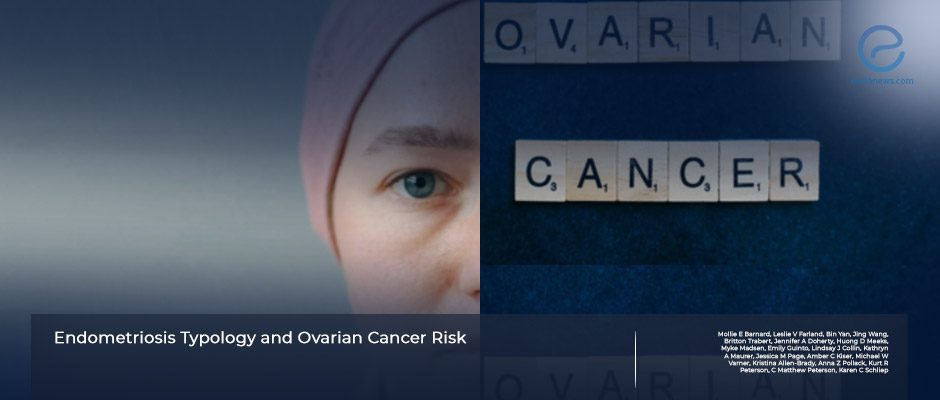Impact of Endometriosis Subtypes on Increased Ovarian Cancer Risk
Jul 26, 2024
The risk of ovarian cancer is increased especially in patients with DIE and ovarian endometrioma.
Key Points
Highlights:
- Women with endometriosis, particularly those with deep infiltrating endometriosis and endometriomas, face a significantly higher risk of ovarian cancer.
- This group may benefit from targeted cancer screening and prevention efforts.
Importance:
- Endometriosis is known to elevate the risk of ovarian cancer.
- The relationship between specific endometriosis types and ovarian cancer subtypes remains poorly understood.
What’s done here:
- A population-based retrospective cohort study was conducted using data from the Utah Population Database.
- The study aimed to evaluate the link between endometriosis subtypes and ovarian cancer incidence, both overall and by histotype.
- The cohort included 78,893 women with endometriosis, matched at a 1:5 ratio with women without endometriosis.
Key results:
- Women with endometriosis face a higher risk of all types of ovarian cancer compared to those without.
- The risk ranges from 2.70 times higher for high-grade serous ovarian cancer to 11.15 times higher for clear cell carcinoma.
- Overall, women with endometriosis have a 4.20 times greater risk of ovarian cancer.
- The risk is particularly high for those with deep infiltrating endometriosis or ovarian endometriomas.
Strengths and Limitations:
- This study highlighted the links between different endometriosis subtypes and both the overall risk and specific histologic types of ovarian cancer, distinguishing it from previous publications.
- Due to the absence of a specific endometriosis biomarker for endometriosis and variations in diagnostic methods over time; along with challenges in diagnosing asymptomatic women, there is a risk of misclassifying endometriosis.
- Although the authors tried to account for major confounding factors, the dataset lacked information on medical treatments for endometriosis, such as oral contraceptives or hormone therapy.
- The dataset did not include data on BRCA gene mutations or homologous recombination deficiency which could influence risk assessments for endometrioid and serous cancers.
Lay Summary
The risk of ovarian cancer is markedly increased in patients with ovarian endometriomas and/or deep infiltrating endometriosis (DIE), according to a new study published in The Journal of the American Medical Association.
These patients should be offered counseling about the risk of ovarian cancer and its prevention. They could also take part in targeted screening and prevention studies.
In 1925, Sampson first linked endometriosis with epithelial ovarian cancer. Since then, research has shown that women with endometriosis have an elevated risk of ovarian cancer. While many studies have explored the connection between endometriosis and various types of epithelial ovarian cancer, there is limited data on how specific types or characteristics of endometriosis relate to these cancers.
Here, a team of researchers led by Dr. Karen C. Schliep from the Department of Family and Preventive Medicine, University of Utah Health in Salt Lake City conducted a population-based cohort study in 78 893 patients with endometriosis, with one or more endometriosis diagnosis; and 394465 women without the disease to assess the link between the different types of endometriosis and the incidence of ovarian cancer.
Women with endometriosis are at a greater risk for all types of ovarian cancer compared to those without the condition. Specifically, their risk is about 2.7 times higher for high-grade serous ovarian cancer and up to 11 times higher for clear cell carcinoma. On average, women with endometriosis face a four times greater risk of ovarian cancer. This risk is especially pronounced for those with deep infiltrating endometriosis or ovarian endometriomas.
Dr.Michael T.McHale from the Department of Obstetrics, Gynecology and Reproductive Sciences, Division of Gynecologic Oncology, University of California, San Diego, wrote an editorial to this study in the same issue of JAMA, with a conclusion saying "Future investigations must explore the biology of this association and mechanisms contributing to malignant transformation. Moreover, molecular assessment of women with endometriosis and ovarian cancer, compared with women with endometriosis without ovarian cancer, may facilitate the identification of women at higher risk. Ultimately, characterizing these differences could support consideration for a more prescriptive surveillance recommendation or possible strategies for risk reduction. Moreover, these data support the importance of counseling women with deep infiltrating endometriosis and ovarian endometriomas regarding the increased risk for ovarian cancer. Although the absolute number of ovarian cancers is limited, the increased risk is significant".
Research Source: https://pubmed.ncbi.nlm.nih.gov/39018030/
ovarian cancer ovarian endometrioma deep infiltrating endometriosis DIE

